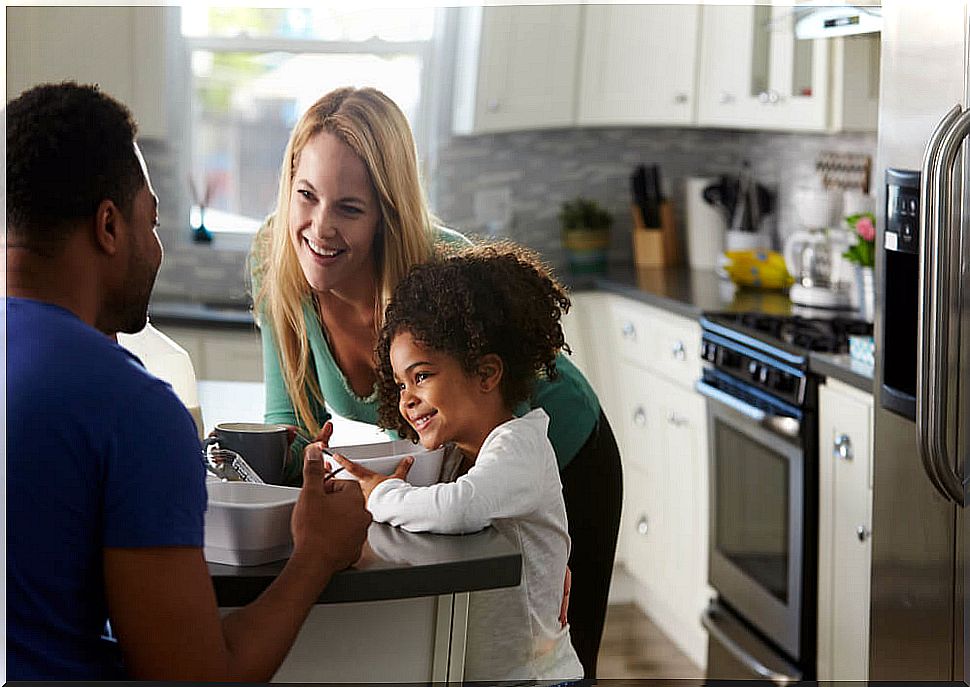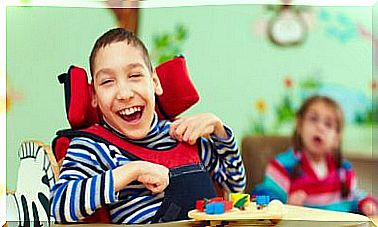How To Solve Communication Problems In Parents

Lack or communication problems that can arise from a conflict of understanding between parents can cause severe problems in the family. The relationship between the parents deteriorates and the children will feel insecure because they will not be able to trust their parents enough.
It has nothing to do with one parent siding with the other parent. Sometimes it has to do with one parent not supporting the other in front of the children.
Even if you do not agree with something in particular, it is necessary for parents to support each other and, if later there are discrepancies in the children’s education, they should speak in private, without the presence of the minors.
When there is a lack of support in communication
When a parent does not support another or does not support him in certain circumstances, it is normal for children to see him as “the bad one”, “the weak one”, and so on.
Poor communication between parents is not just a matter of fighting in front of the children. Most of the time it includes subtle behaviors or communication “styles” that send a harmful message.
Many parents find it difficult to address the problem because they do not know how to express their discomfort in words. Parents often have a “feeling” that they are not in a cooperative situation, but cannot see the pattern clearly.
Types of communication that can cause problems
There are some types of parental communication and behaviors that can cause problems. Some of these types need to be taken into account because parents will be able to identify whether it is really happening to them or not. Some of these types of communication that can cause problems are as follows.

The card player
In a card game, the player who wins has one card that beats all the others. In parenting, this person will always want to be right in parenting or a disciplinary situation of the other parent. Sometimes this is done when the other person becomes the new authority figure in the conversation by yelling or meting out punishment.
In other situations, the trump player may complain that the other parent is childish, or may “demote” the other parent to child status. It is important for parents to show that they are on the same page during a disciplinary situation, but this parent will undermine the other parent’s position of strength.
False security
Under the mistaken feeling that the other parent is causing the child to suffer emotionally, false security will give some kind of relief during a difficult situation. Parents can sneak around in other ways as well.
For example, by allowing a child to use the computer when temporarily prohibited or by giving the child attention and comfort in the middle of a tantrum. Dealing with true false security is reducing your own feelings of discomfort and anxiety about the child’s situation.
Parent Analyzer
The parent profiler will have private conversations with the children about the other parent, either by complaining directly about the other parent or in less obvious ways. ” It’s also difficult for me when she’s in a bad mood,” is a common phrase.
This parenting style prevents a parent from having to deal directly with the other parent about the communication or behavior that bothers them. In situations where there is truly dangerous parenting behavior, the profiler will communicate this way with the child instead of taking that scary step of thinking about leaving the situation.
Aligner
This type of communication involves bringing together other people in the family to speak out against a parent who is trying to assert authority or parenting status. At the dinner table, an alienator may incite a child to disagree with the other parent’s point of view.
Sometimes the alienator will subtly encourage all the children to take sides against the other parent. Since the alienator is generally in a position to alleviate authority in the situation, children will naturally become alienated from that parent. Solving these problems sooner rather than later is critical.

Fix communication problems in parents
It is almost impossible to address a communication problem with parents while a parenting situation is taking place. Attempting to confront parenting error often ends in an argument or premature end to resolving the situation with the child.
As families grow, it becomes even more complex if communication problems have not been resolved. These simple tips can help parents get on the path to communication and co-parenting:
- Analyze the essentials beforehand. Compare lists of which child behaviors are “not acceptable” and which deserve a lighter consequence. Each parent must balance negative and positive consequences, using them together.
- Don’t play the role of the “bad guy”; no one should have it. One of the parents should not be cast as the “bad guy” in the family, even if it is the most comfortable role for them. Do not triangulate unless requested by the other parent. “Triangular” means jumping into the middle of a conflict that a parent and child are having, without being asked. You may feel like you have a better set of tools to deal with the situation, but it undermines the other parent’s ability to work through a problem to completion.
On communication problems, don’t forget …
- If you disagree, openly acknowledge respect for the other parent’s opinion. Open disagreement between parents is not bad parenting, and if done right, it can help children model how disagreements should be handled.
- Assign important consequences after the discussion. There is no rule that parents do not have time to discuss a consequence of a child’s behavior before assigning it. Talk for a few minutes to agree on an appropriate consequence and, more importantly, how to encourage your little one to change the behavior next time.
- Avoiding harmful disagreements and presenting a unified front leads to the best outcome for children. Achieving that quality of communication with your partner is a goal that requires effort. It also requires the courage to change and the understanding that you will gain something rather than lose something if you are successful.










